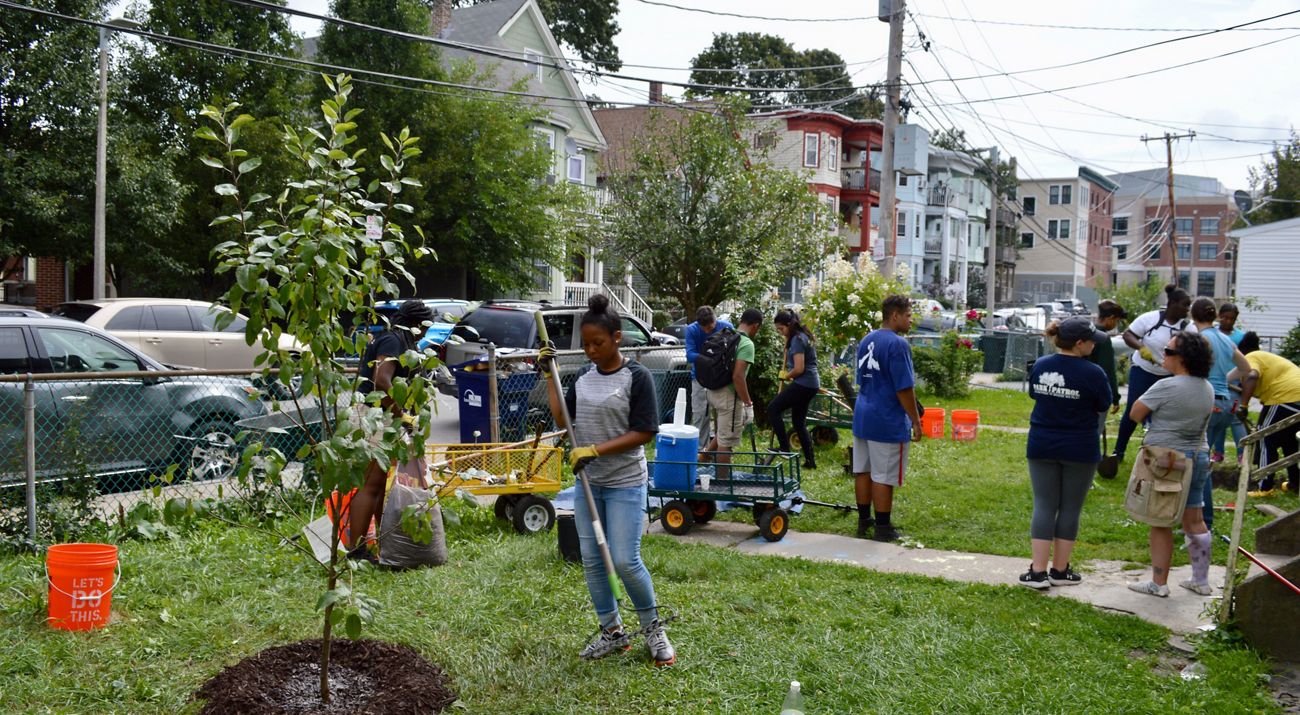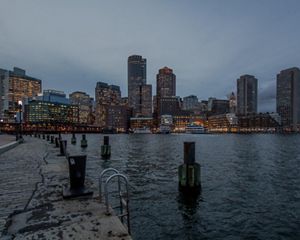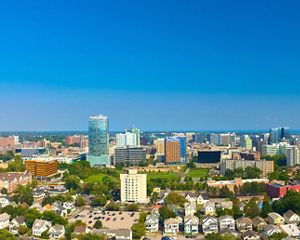Partnering for a Greener Boston
Q&A with Codman Square Neighborhood Development Corporation’s David Queeley
This page was updated on December 19, 2019.
Nature.org: Your work with The Nature Conservancy focuses on the Talbot-Norfolk Triangle Eco-Innovation District. What is that?
David Queeley: The six-year-old Eco-Innovation District is a comprehensive neighborhood-led sustainability project that marries green, transit-oriented development; renewable energy; water conservation; and climate preparedness through resilience. It’s Boston’s first Eco-Innovation District—or EID, serving the Talbot-Norfolk Triangle, a 13-block section of the Dorchester neighborhood. The Codman Square Neighborhood Development Corporation hosts the project; our primary neighborhood partner is Talbot-Norfolk Neighbors United, residents that live and work in the EID.
Nature.org: How are you collaborating with TNC?
David Queeley: We’re collaborating on neighborhood-scale sustainability, citizen engagement, and measuring the impacts of our work. Working at that scale allows us to engage residents over time in multiple sustainability-related projects such as tree planting and horticulture training, and education about the importance of green infrastructure like enhanced tree canopies and raingardens that beautify neighborhoods and provide services like stormwater filtration. Partnering with residents lets us hear directly from them and support their desires for their neighborhood.
Nature.org: TNC’s North America Cities Partnership Fund awarded $250,000 for this collaboration. What will that support?
David Queeley: In the EID, approximately 50 percent of men of color are unemployed. Lack of gainful, long-term employment has negative effects, from increased crime and recidivism, to split families, to a lack of educational attainment. Using green infrastructure specifically, we aim to provide paths to long-term work that will help lift men of color out of the poverty cycle and help meet basic needs like stable places to live. The grant will assist outreach to minority contractors, minority- and women-owned businesses, and young people, to offer training and certification opportunities to maintain and build green infrastructure in Boston.


